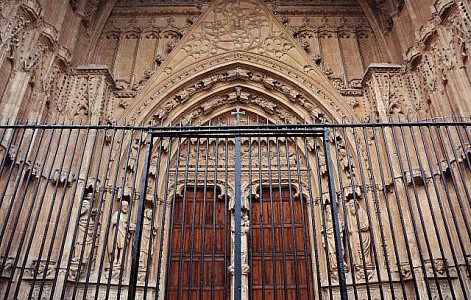[辅导:AncientLawChapter6]If an attempt were made to demonstrate in England the superiority of the historical method of investigation to the modes of inquiry concerning Jurisprudence whi...+阅读
Chapter 1. Ancient Codes
The most celebrated system of jurisprudence known to the world begins, as it ends, with a Code. From the mencement to the close of its history, the expositors of Roman Law consistently employed language which implied that the body of their system rested on the Twelve Decemviral Tables, and therefore on a basis of written law. Except in one particular, no institutions anterior to the Twelve Tables were recognised at Rome. The theoretical descent of Roman jurisprudence from a code, the theoretical aion of English law to immemorial unwritten tradition, were the chief reasons why the development of their system differed from the development of ours. Neither theory corresponded exactly with the facts, but each produced consequences of the utmost importance.
I need hardly say that the publication of the Twelve Tables is not the earliest point at which we can take up the history of law. The ancient Roman code belongs to a class of which almost every civilised nation in the world can show a sample, and which, so far as the Roman and Hellenic worlds were concerned, were largely diffused over them at epochs not widely distant from one another. They appeared under exceedingly similar circumstances, and were produced, to our knowledge, by very similar causes. Unquestionably, many jural phenomena lie behind these codes and preceded them in point of time. Not a few documentary records exist which profess to give us information concerning the early phenomena of law; but, until philology has effected a plete analysis of the Sanskrit literature, our best sources of knowledge are undoubtedly the Greek Homeric poems, considered of course not as a history of actual occurrences, but as a deion, not wholly idealised, of a state of society known to the writer. However the fancy of the poet may he exaggerated certain features of the heroic age, the prowess of warrior and the potency of gods, there is no reason to believe that it has tampered with moral or metaphysical conceptions which were not yet the subjects of conscious observation; and in this respect the Homeric literature is far more trustworthy than those relatively later documents which pretend to give an account of times similarly early, but which were piled under philosophical or theological influences. If by any means we can determine the early forms of jural conceptions, they will be invaluable to us. These rudimentary ideas are to the jurist what the primary crusts of the earth are to the geologist. They contain, potentially all the forms in which law has subsequently exhibited itself. The haste or the prejudice which has generally refused them all but the most superficial examination, must bear the blame of the unsatisfactory condition in which we find the science of jurisprudence. The inquiries of the jurist are in truth prosecuted much as inquiry in physic and physiology was prosecuted before observation had taken the place of assumption. Theories, plausible and prehensive, but absolutely unverified, such as the Law of Nature or the Social pact, enjoy a universal preference over sober research into the primitive history of society and law; and they obscure the truth not only by diverting attention from the only quarter in which it can be found, but by that most real and most important influence which, when once entertained and believed in, they are enabled to exercise on the later stages of jurisprudence.
The earliest notions connected with the conception, now so fully developed, of a law or rule of life, are those contained in the Homeric words "Themis" and "Themistes." "Themis," it is well known, appears in the later Greek pantheon as the Goddess of Justice, but this is a modern and much developed idea, and it is in a very different sense that Themis is described in the Iliad as the assessor of Zeus. It is now clearly seen by all trustworthy observer of the primitive condition of mankind that, in the infancy of the race, men could only account for sustained or periodically recurring action by supposing a personal agent. Thus, the wind blowing was a person and of course a divine person; the sun rising, culminating, and setting was a person and a divine person; the earth yielding her increase was a person and divine. As, then, in the physical world, so in the moral. When a king decided a dispute by a sentence, the judgment was assumed to be the result of direct inspiration. The divine agent, suggesting judicial awards to kings or to gods, the greatest of kings, was Themis. The peculiarity of the conception is brought out by the use of the plural. Themistes, Themises, the plural of Themis, are the awards themselves, divinely dictated to the judge. Kings are spoken of as if they had a store of "Themistes" ready to hand for use; but it must be distinctly understood that they are not laws, but judgments. "Zeus, or the human king on earth," says Mr. Grote, in his History of Greece, "is not a lawmaker, but a judge." He is provided with Themistes, but, consistently with the belief in their emanation from above, they cannot be supposed to be connected by any thread of principle; they are separate, isolated judgments.
Even in the Homeric poems, we can see that these ideas are transient. Parities of circumstance were probably moner in the simple mechanism of ancient society than they are now, and in the succession of similar cases awards are likely to follow and resemble each other. Here we he the germ or rudiment of a Custom, a conception posterior to that of Themistes or judgments. However strongly we, with our modern associations, may be inclined to lay down a priori that the notion of a Custom must precede that of a judicial sentence, and that a judgment must affirm a Custom or punish its breach, it seems quite certain that the historical order of the ideas is that in which I he placed them. The Homeric word for a custom in the embryo is sometimes "Themis" in the singular-more often "Dike," the meaning of which visibly fluctuates between a "judgment" and a "custom" or "usage." Nomos, a Law, so great and famous a term in the political vocabulary of the later Greek society, does not occur in Homer.
This notion of a divine agency, suggesting the Themistes, and itself impersonated in Themis, must be kept apart from other primitive beliefs with which a superficial inquirer might confound it. The conception of the Deity dictating an entire code or body of law, as in the case of the Hindoo laws of Menu, seems to belong to a range of ideas more recent and more advanced. "Themis" and "Themistes" are much less remotely linked with that persuasion which clung so long and so tenaciously to the human mind, of a divine influence underlying and supporting every relation of life, every social institution. In early law, and amid the rudiments of political thought, symptoms of this belief meet us on all sides. A supernatural presidency is supposed to consecrate and keep together all the cardinal institutions of those times, the State, the Race, and the Family. Men, grouped together in the different relations which those institutions imply, are bound to celebrate periodically mon rites and to offer mon sacrific

es; and every now and then the same duty is even more significantly recognised in the purifications and expiations which they perform, and which appear intended to deprecate punishment for involuntary or neglectful disrespect. Everybody acquainted with ordinary classical literature will remember the sacra gentilicia, which exercised so important an influence on the early Roman law of adoption and of wills. And to this hour the Hindoo Customary Law, in which some of the most curious features of primitive society are stereotyped, makes almost all the rights of persons and all the rules of succession hinge on the due solemnisation of fixed ceremonies at the dead man's funeral, that is, at every point where a breach occur in the continuity of the family.
Before we quit this stage of jurisprudence, a caution may be usefully given to the English student. Bentham, in his Fragment on Government, and Austin, in his Province of Jurisprudence Determined, resolve every law into a mand of the lawgiver, an obligation imposed thereby on the citizen, and a sanction threatened in the event of disobedience; and it is further predicated of the mand, which is the first element in a law, that it must prescribe, not a single act, but a series or number of acts of the same class or kind. The results of this separation of ingredients tally exactly with the facts of mature jurisprudence; and, by a little straining of language, they may be made to correspond in form with all law, of all kinds, at all epochs. It is not, however, asserted that the notion of law entertained by the generality is even now quite in conformity with this dissection; and it is curious that, the farther we perate into the primitive history of thought, the farther we find ourselves from a conception of law which at all resembles a pound of the elements which Bentham determined. It is certain that, in the infancy of mankind, no sort of legislature, not even a distinct author of law, is contemplated or conceived of. Law has scarcely reached the footing of custom; it is rather a habit. It is, to use a French phrase, "in the air." The only authoritative statement of right and wrong is a judicial sentence after the facts, not one presupposing a law which has been violated, but one which is breathed for the first time by a higher power into the judge's mind at the moment of adjudication. It is of course extremely difficult for us to realise a view so far removed from us in point both of time and of association, but it will bee more credible when we dwell more at length on the constitution of ancient Society, in which every man, living during the greater part of his life under the patriarchal despotism, was practically controlled in all his actions by a regimen not of law but of caprice. I may add that an Englishman should be better able than a foreigner to appreciate the historical fact that the "Themistes" preceded any conception of law, because, amid the many inconsistent theories which prevail concerning the character of English jurisprudence, the most popular, or at all events the one which most affects practice, is certainly a theory which assumes that adjudged cases and precedents exist antecedently to rules, principles, and distinctions. The "Themistes" he too, it should be remarked, the characteristic which, in the view of Bentham and Austin, distinguishes single or mere mands from laws. A true law enjoins on all the citizens indifferently a number of acts similar in class or kind; and this is exactly the feature of a law which has most deeply impressed itself on the popular mind, Causing the term "law" to be applied to mere uniformities, successions, and similitudes. A mand prescribes only a single act, and it is to mands, therefore, that "Themistes" are more akin than to laws. They are simply adjudications on insulated states of fact, and do not necessarily follow each other in any orderly sequence.
The literature of the heroic age discloses to us law in the germ under the "Themistes" and a little more developed in the conception of "Dike." The next stage which we reach in the history of jurisprudence is strongly marked and surrounded by the utmost interest. Mr. Grote, in the second part and second chapter of his History, has fully described the mode in which society gradually clothed itself with a different character from that delineated by Homer. Heroic kingship depended partly on divinely given prerogative, and partly on the possession of supereminent strength, courage, and wisdom. Gradually, as the impression of the monarch's sacredness became weakened, and feeble members occurred in the series of hereditary kings, the royal power decayed, and at last ge way to the dominion of aristocracies. If language so precise can be used of the revolution, we might say that the office of the king was usurped by that council of chiefs which Homer repeatedly alludes to and depicts. At all events from an epoch of kingly rule we e everywhere in Europe to an era of oligarchies; and even where the name of the monarchical functions does not absolutely disappear, the authority of the king is reduced to a mere shadow. He bees a mere hereditary general; as in Lacedaemon, a mere functionary, as the King Archon at Athens, or a mere formal hierophant, like the Rex Sacrificulus at Rome. In Greece, Italy, and Asia Minor, the dominant orders seem to he univerally consisted of a number of families united by an assumed relationship in blood, and, though they all appear at first to he laid claim to a quasi-sacred character, their strength does not seem to he resided in their pretended sanctity. Unless they were prematurely overthrown by the popular party, they all ultimately approached very closely to what we should now understand by a political aristocracy. The changes which society underwent in the munities of the further Asia occurred of course at periods long anterior in point of time to these revolutions of the Italian and Hellenic worlds; but their relative place in civilisation appear to he been the same, and they seem to he been exceedingly similar in general character. There is some evidence that the races which were subsequently united under the Persian monarchy, and those which peopled the peninsula of India, had all their heroic age and their era of aristocracies; but a military and a religious oligarchy appear to he grown up separately, nor was the authority of the king generally superseded. Contrary, too, to the course of events in the West, the religious element in the East tended to get the better of the military and political. Military and civil aristocracies disappear, annihilated or crushed into insignificance between the kings and the sacerdotal order; and the ultimate result at which we arrive is, a monarch enjoying great power, but circumscribed by the privileges of a caste of priests. With these differences, however, that in the East aristocracies became religious, in the West civil or political, the proposition that a historical era of aristocracies succeeded a historical era of heroic kings may be considered as true, if not of all mankind, at all events of all branches of the Indo-European family of nations.
以下为关联文档:
辅导:AncientLawChapter7The conception of a universal succession, firmly as it has taken root in jurisprudence, has not occurred spontaneously to the framers of every body of laws. Where...

AncientLawChapter1AncientCodesChapter 1. Ancient CodesThe most celebrated system of jurisprudence known to the world begins, as it ends, with a Code. From the mencement to the close of its hi...

法律辅导:AncientLawChapter9Chapter 9. The Early History of ContractThere are few general propositions concerning the age to which we belong which seem at first sight likely to be receive...

辅导:AncientLawChapter4Chapter 4. The Modern History of the Law of NatureIt will be inferred from what has been said that the theory which transformed the Roman jurisprudence had no...

辅导:AncientLawChapter8Chapter 7. Ancient and Modern Ideas Respecting Wills and SuccessionsAlthough there is much in the modern European Law of Wills which is intimately connected wi...




